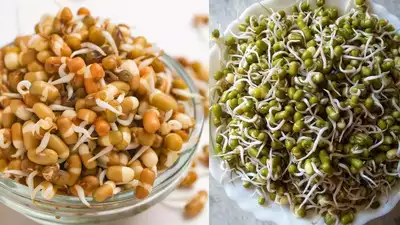Sprouts are a powerhouse of nutrition, but the way you consume them—raw or steamed—can affect their health benefits. Here’s a breakdown to help you decide:
Raw Sprouts
- Nutritional Value: Raw sprouts retain their complete nutrient profile, including vitamins, minerals, and enzymes. They are rich in vitamin C, antioxidants, and dietary fiber.
- Digestibility: Eating raw sprouts can sometimes cause bloating or indigestion due to the presence of natural enzyme inhibitors.
- Safety Concerns: Raw sprouts carry a risk of contamination by bacteria like E. coli or Salmonella, especially if not properly washed or stored.
Steamed Sprouts
- Nutritional Value: Steaming can reduce some heat-sensitive vitamins like vitamin C but retains most minerals and fiber. It also makes sprouts easier to digest by neutralizing enzyme inhibitors.
- Safety: Steaming significantly reduces the risk of bacterial contamination, making sprouts safer to consume.
- Taste and Texture: Steaming softens the sprouts slightly, making them less crunchy and more palatable for some people.
Which Is Healthier?
- If safety and digestion are concerns, steamed sprouts are a better option, especially for children, elderly individuals, or those with a sensitive stomach.
- If you’re seeking maximum nutrient retention and prefer a crunchy texture, raw sprouts are ideal—but ensure they are fresh, thoroughly washed, and sourced from a reliable vendor.
Including a mix of raw and steamed sprouts in your diet can give you the best of both worlds: nutrient-packed and safe-to-eat options.




